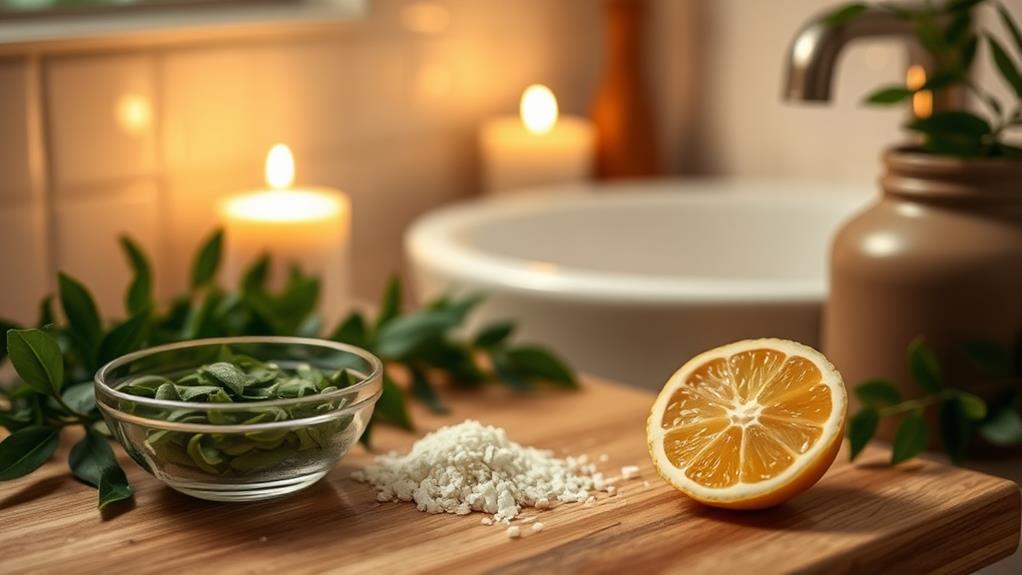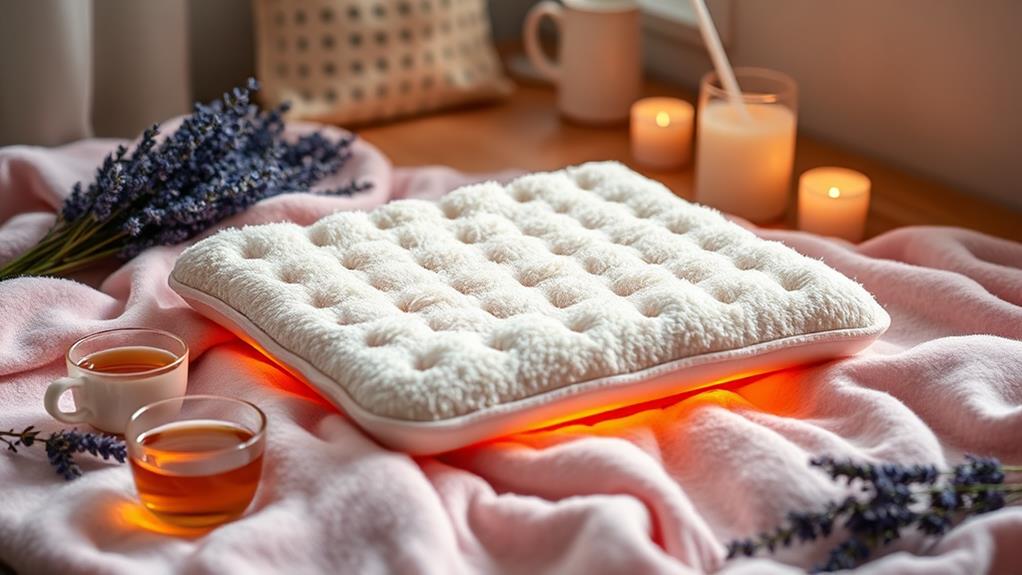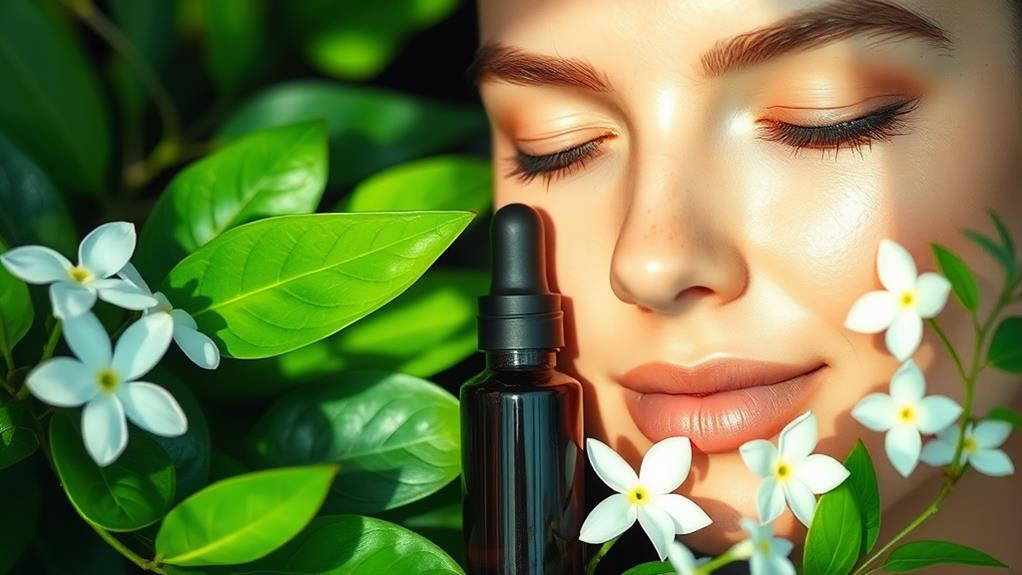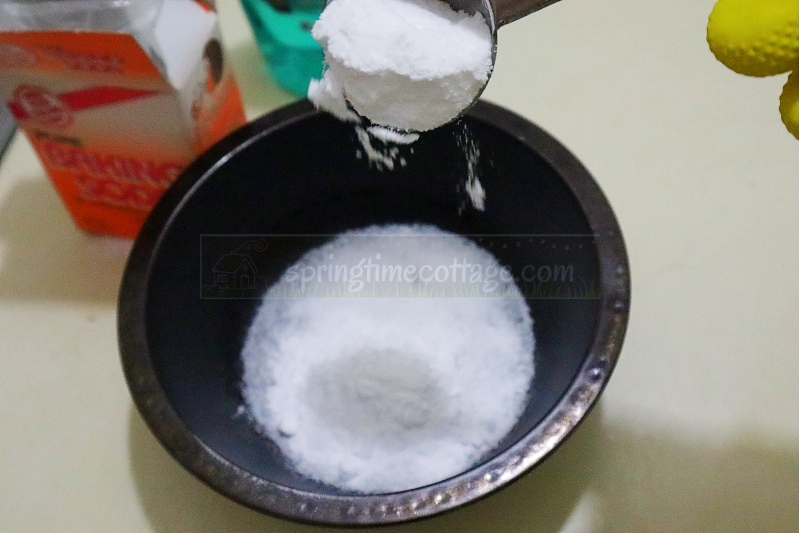When those period cramps hit, you probably have a go-to remedy that helps you cope. Whether it’s a specific herbal tea, a heating pad, or a gentle stretch, everyone has their own approach to managing the discomfort. You might even have tried a few methods that didn’t quite work for you. So, what’s your secret weapon against those pesky cramps? Sharing your experiences might uncover some effective solutions that others haven’t considered, leading to a better understanding of what works—and what doesn’t—when it comes to alleviating this common issue.
Key Takeaways
- A warm heating pad or hot water bottle can effectively relax muscles and reduce cramps.
- Herbal teas like chamomile or ginger provide soothing relief during menstruation.
- Gentle exercises such as walking or yoga can enhance mood and alleviate pain.
- Over-the-counter medications like ibuprofen can help reduce inflammation and relieve pain.
- Staying hydrated and consuming magnesium-rich foods can support muscle relaxation and reduce discomfort.
Understanding Period Cramps
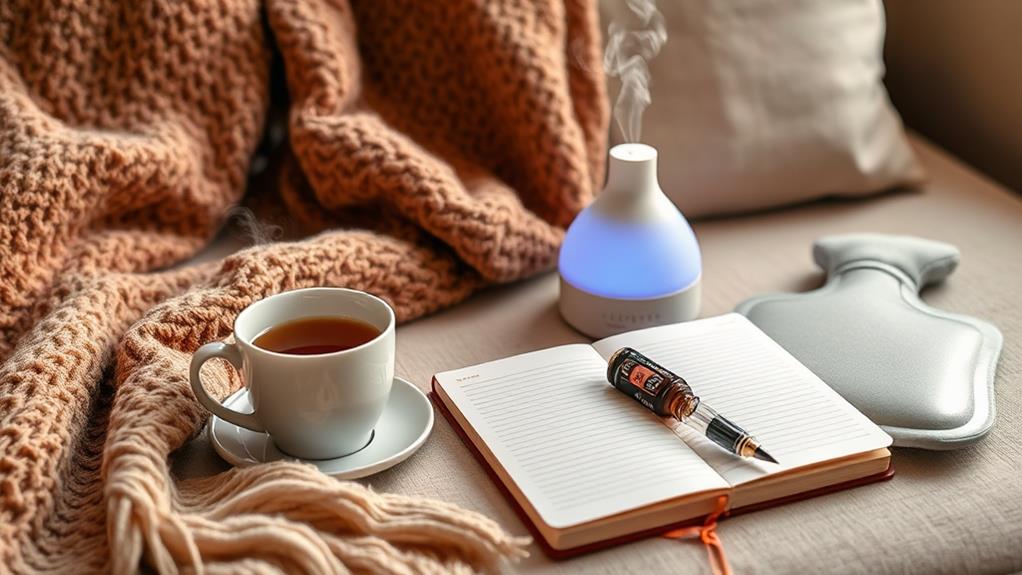
Understanding period cramps can feel overwhelming, but grasping their nature is the first step toward relief. These cramps, also known as dysmenorrhea, happen when your uterus contracts to shed its lining. You might feel pain in your lower abdomen, and sometimes it can extend to your back and thighs. It’s completely normal to experience this, and many people do, so you’re not alone!
The intensity of cramps can vary from month to month, and for some, they can be mild, while for others, they may be more intense. Hormones called prostaglandins are released during your period, and they can make your uterus contract more strongly, leading to increased pain. Understanding this process is key to knowing why you feel the way you do.
Being in tune with your body can help you manage these cramps better. Keeping a period diary can help you track your symptoms, so you can share them with a healthcare provider if needed.
Recognizing what triggers your cramps can also be useful, as some lifestyle factors can influence their severity. Remember, knowledge is power, and understanding period cramps is the first step toward feeling better!
Natural Remedies
Finding relief from period cramps can often be achieved through natural remedies that soothe discomfort without relying on medication. You might want to try a warm heating pad or a hot water bottle on your lower belly. The warmth helps relax your muscles, easing those painful cramps.
Another great option is herbal tea. Chamomile, ginger, and peppermint teas are known for their soothing properties. Sip on a warm cup, and you might find some comfort as the cramps fade away.
Don’t forget about gentle exercise! Light activities like walking or yoga can really help boost your mood and reduce pain. Stretching can also relieve tension in your body.
Eating healthy foods can make a difference too. Try to include fruits, vegetables, and whole grains in your diet. Foods rich in magnesium, like nuts and leafy greens, can help relax your muscles.
Lastly, remember to stay hydrated. Drinking plenty of water can lessen bloating and discomfort.
Over-the-Counter Medications
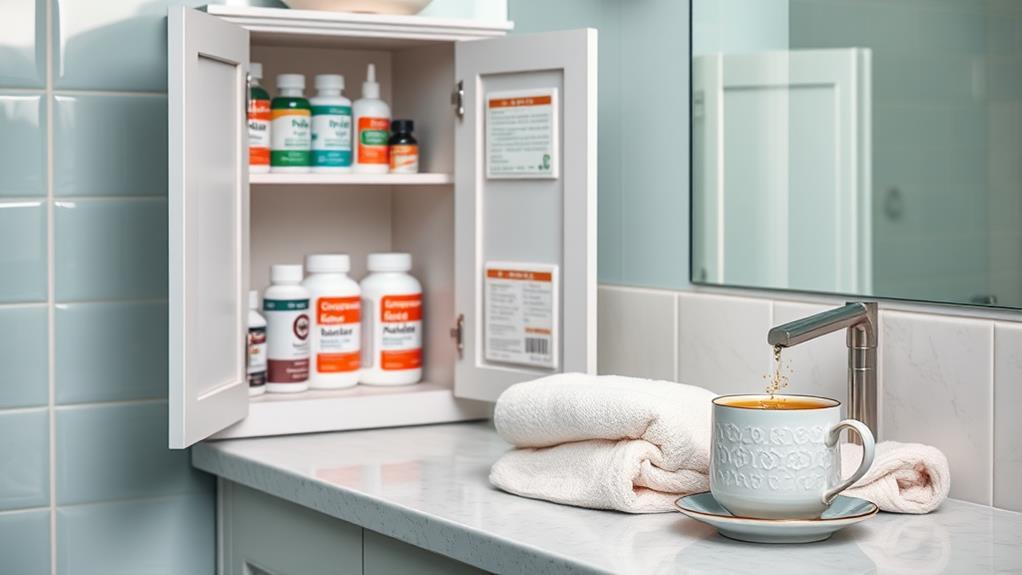
Over-the-counter medications offer quick relief for period cramps, making them a convenient option when natural remedies aren’t enough. Many people find that pain relievers like ibuprofen or naproxen work wonders. These medications help reduce inflammation and ease the pain, so you can feel more comfortable during your period.
Just remember to follow the recommended dosage on the package to stay safe.
If you prefer acetaminophen, that’s another good choice! It can help with pain relief, although it doesn’t reduce inflammation like ibuprofen does. Sometimes, taking a pain reliever as soon as you feel cramps can make a big difference.
You might even find that combining it with a warm heating pad can enhance your comfort.
Always keep in mind that if you have any concerns or if the cramps are severe and don’t go away, it’s a good idea to talk to a doctor. They can help you find the best treatment for your situation.
Lifestyle Changes
Making simple lifestyle changes can greatly reduce period cramps and improve your overall comfort during that time of the month.
First, think about your diet. Eating more fruits, vegetables, and whole grains can help your body stay healthy and reduce inflammation. Staying hydrated is also important, so drink plenty of water throughout the day.
Next, don’t forget about exercise! Regular physical activity, like walking, yoga, or dancing, can release endorphins, which are natural painkillers. Even a short walk can make a big difference.
Plus, getting enough sleep every night helps your body recover and feel better overall.
You might want to try some relaxation techniques too. Deep breathing, meditation, or even light stretching can help ease tension and make cramps feel less intense.
When to Seek Medical Help
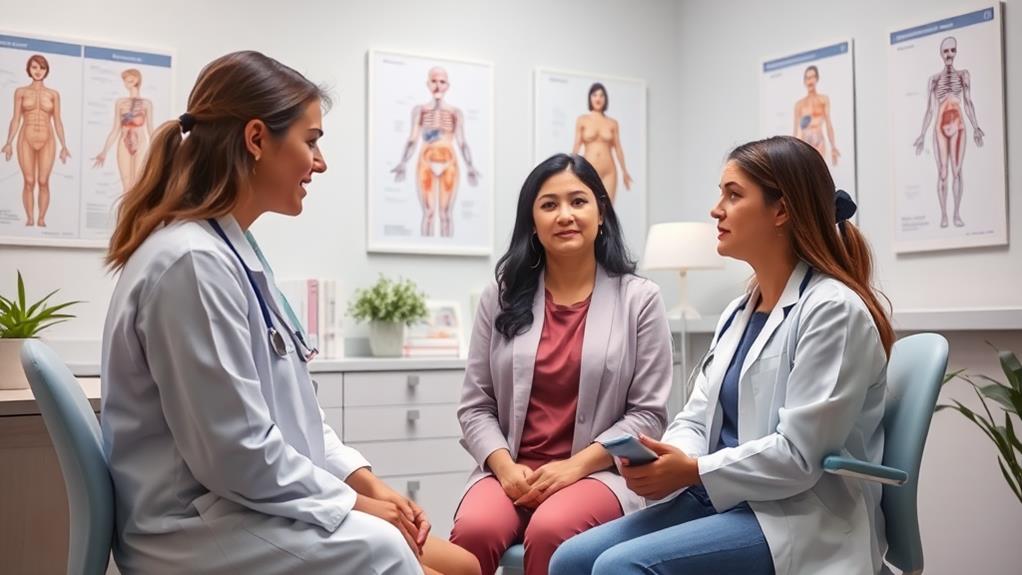
While many women experience mild to moderate period cramps, it’s important to recognize when the pain may signal a more serious issue. If your cramps are so severe that they stop you from doing your normal activities, it’s time to check in with a healthcare provider. You shouldn’t have to miss out on life because of pain.
Another sign to watch for is if your cramps last longer than a few days or if they get worse over time. This could indicate conditions like endometriosis or fibroids that need attention. If you notice heavy bleeding, such as soaking through a pad or tampon every hour for several hours, don’t hesitate to reach out for help.
Additionally, if you experience symptoms like fever, chills, or nausea along with your cramps, it’s best to seek medical advice.

